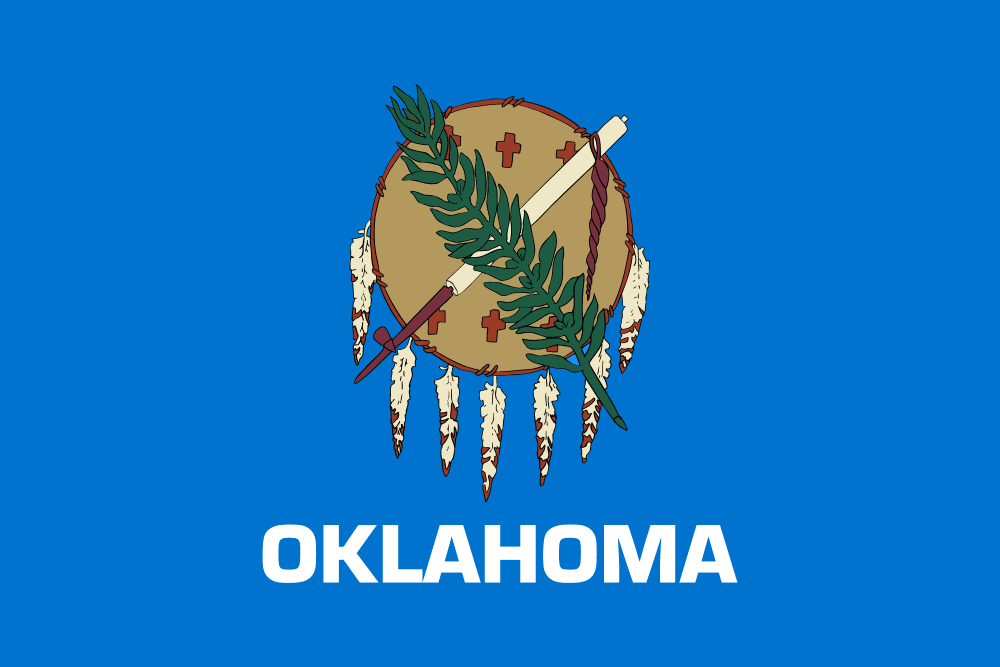Here in Oklahoma, we woke up a couple of weeks ago to learn that, according to the Supreme Court, half the state is still “Indian Territory,” that the Five Tribes that were sent here from the South on the “Trail of Tears” still have jurisdiction over the lands that were promised them in 1856.
The ruling in McGirt v. Oklahoma is quite interesting. And, as both articles in The Federalist and the Wall Street Journal point out, there is nothing “liberal” about it. Rather, the ruling is quite conservative in its legal theory and in the policy it enacts. I have found, though, that discussions both pro- and con- are oblivious to the context here in Oklahoma and are thus misinterpreting what the ruling entails.
Let me give you some background and some updates.
First of all, the Major Crimes Act of 1885 provides that in “the Indian country,” defined as the reservations established by treaty, tribal members who are accused of committing crimes or who are the victims of crimes fall under the jurisdiction of either tribal courts or the federal government, not the states in which the reservations are located.
If you are familiar with Craig Johnson’s Longmire, either the TV series (available for streaming on Netflix) or the mystery novels about a modern-day Wyoming sheriff who must often deal with competing jurisdictions on the Cheyenne reservation, or if you have read the Tony Hillerman mysteries about a tribal police officer on the Navajo reservation, you will have gotten a glimpse of how this works. Tribes have their own police forces and their own courts, with the FBI and federal courts stepping in to handle major crimes.
But the thing is, Oklahoma doesn’t have reservations like those, in which Indians live apart on their own compounds. We used to, but even before statehood in 1907 the reservations were divided up into tribal allotments, with each tribal member receiving clear title to individual parcels of land. Though criticized for breaking up traditional communal ownership, the allotment system put tribal members on a par with white settlers as individual farmers and landowners. One consequence was that in Oklahoma the native and the white populations became quite integrated.
There is still land owned by the tribes as a whole or held in “tribal trusts,” where the Major Crimes Act applies. We have tribal police forces–in our county alone, in an area of smaller tribes, we have Kaw, Tonkawa, Otoe-Missouria, and Ponca law enforcement officers–as well as tribal courts.
This case was started by a heinous sex criminal–he raped a toddler!–who is a Seminole who committed his crime in land that was historically part of the Creek reservation, though it is not presently in a “tribal trust.” He claimed that he should not have been tried by the state but by the federal courts, since the Creek reservation was never formally abolished by Congress when Oklahoma became a state. Though the land is currently in private hands, his lawyers argued, the jurisdiction over tribal members still belongs to the tribes and the feds.
The Supreme Court agreed. The ruling is that the original boundaries of the tribal holdings–not just the land “on Indian trust or restricted lands”–remains under tribal jurisdiction when it comes to law enforcement. Non-Indians are not affected, nor does the ruling affect anyone’s property. But the ruling may have ramifications for other kinds of jurisdiction.
The particular case involved the Creek Nation, but the findings will also apply to the Cherokee, Choctaw, Chickasaw, and Seminole tribes, giving them jurisdiction over the eastern half of the state, including Tulsa.
Now the tribes have promised that the convicted sexual predator who started the case will never go free. But lots of other prisoners in the state penitentiary will need to be retried.
Importantly, in a development not widely reported, the tribes have already hammered out an agreement with the state that gives the the state jurisdiction over criminal cases in the Indian territories, while clarifying the tribe’s jurisdiction in certain kinds of cases. Not all of the tribes are yet on board with the agreement, and it will have to be approved by an act of Congress in Washington. But some version of the agreement will help straighten out the confusion in the Oklahoma legal system.
Other issues, though, are uncertain: What will this new tribal authority mean for other state laws? Will tribal members have to pay state taxes? Will the tribes have jurisdiction over licensing and regulation? The Washington Post thinks the ruling will give the tribes authority over the approval of gas pipelines through their territory, but the reporter is thinking of the Plains Indians’ attempts to stop oil companies from infringing on their sacred lands. The Five Tribes of Oklahoma usually don’t think that way and are generally friendly to the oil industry, especially when oil is found on tribal lands. But such questions will have to be resolved by further litigation or legislation.
The Supreme Court ruling was on originalist and textualist grounds. The law establishing the reservation was never repealed. It’s liberal jurisprudence that draws back from enforcing 19th century laws on the grounds that times change and the legal interpretation have to evolve to fit the modern world. (Read Joshua Lawson’s analysis of the decision in The Federalist.)
And though Progressives hailed the ruling as supporting Native American rights, the issues will be complicated for them as well. The Five Tribes displaced from their homes in the Southern states owned slaves. Some tribal members fought for the Confederacy. Should the Cherokees, Choctaws, Chickasaws, Creeks, and Seminoles be cancelled?
The slaveholding Cherokees may have been racist at the time, but they themselves were also victims of racism. After Emancipation, the former slaves were made members of the tribes. The “Black Cherokees” of Eastern Oklahoma are tribal members, whereas individuals who can claim some Cherokee ancestry–such as Elizabeth Warren–are not. Again, reality gets complicated.
Also, though most Native Americans nationwide are Democrats, many in Oklahoma are conservative Republicans. The Creek Nation, the direct beneficiaries of the Supreme Court case, still reject same-sex marriage as a violation of their laws and their culture and refuse to recognize it from other jurisdictions, something the Supreme Court allows them to do. (Read M. Todd Henderson’s article in the Wall Street Journal, Native American Sovereignty Is No Liberal Triumph [subscription required].)
Also going against the prevailing stereotypes of indigenous people, lots of tribal members in Oklahoma are supporters of Donald Trump. The most prominent are Governor Kevin Stitt, Congressman Markwayne Mullin, and Senator Tom Cole, all of whom are Cherokees. But this is true of the grassroots also, as lots of cars I see have tribal license tags along with pro-Trump bumper stickers.
Still again, reality gets complicated.
Illustration: State Flag of Oklahoma, By xrmap – from the xrmap flag collection 2.7, Public Domain, https://commons.wikimedia.org/w/index.php?curid=527607 via Wikimedia Commons













